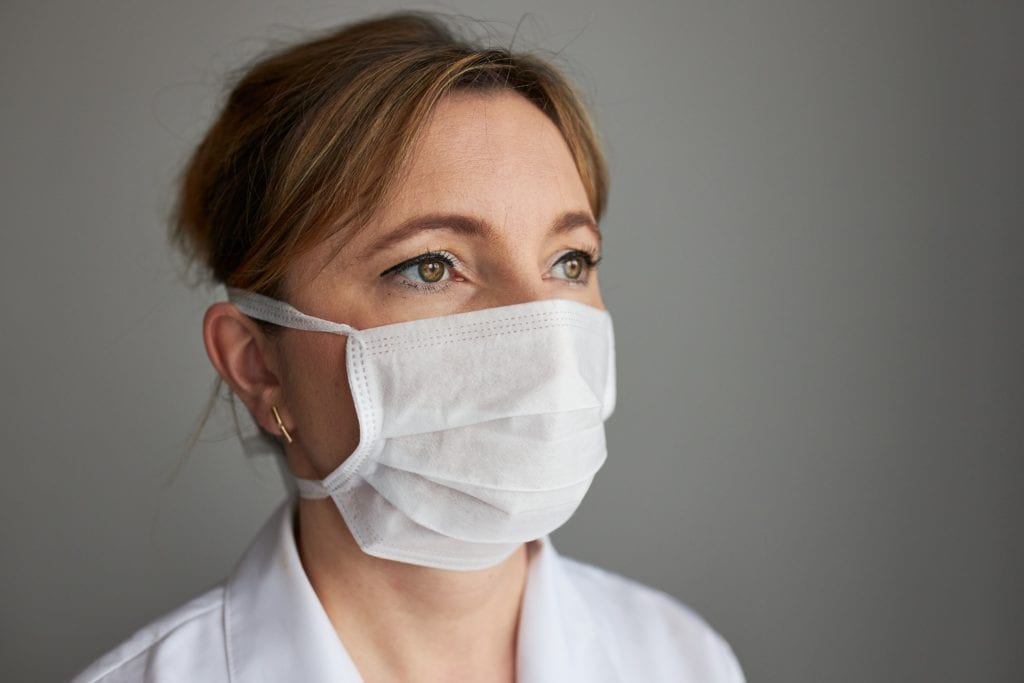In 2019 staying home due to fears that you might become contaminated with an illness, wearing gloves, sanitizing everything, wearing a mask, and rejecting a handshake would be cause for concern. However, in 2020 these practices have become a daily part of our lives.
This pandemic has undoubtedly brought with it many challenges and changes to our way of life , and it’s no secret that living in the time of COVID-19 has ushered in a new age of uncertainty and fear.
The Irrational Becoming Rational
There continue to be so many unanswered questions and many of us are experiencing heightened levels of anxious or worried thoughts about the virus. Contradicting science and opposing viewpoints make it difficult to know what to believe, and in many ways, we are all left with a level of confusion about what is safe and what isn’t.
In this time, we also may be experiencing fear about getting the virus ourselves or infecting someone we love and wondering what the long-term effects that this pandemic will have on our society. In addition to all of this, COVID anxiety may lead to an increased suspicion of other people out in public that underlies each social encounter. Judgments may be placed on others who choose to handle themselves according to values that are different from your own.
This COVID-related anxiety and stress can be especially challenging for people who have a preexisting struggle with anxiety. Those who have OCD symptoms —especially those centered around hygiene— may find themselves washing their hands more than usual or not leaving the house.
Those who struggle with social anxiety now have a legitimate reason not to connect with others to abide by social distancing measures. It is challenging to know what is a healthy response to fear versus what is COVID anxiety taking over and what might require further mental health treatment.
Setting Boundaries and Limits
Check yourself: Are you responding or obsessing?
Fear is a necessary emotion for you to take necessary action. Fear helps to remind yourself not to touch your face while at the store and regularly use sanitizer. These are actionable steps within your control that can address the fear.
On the other hand, obsessions continue after you manage what is within your control and yet still experience continued ruminations of anxiety and fear.
This might look like a situation where someone gets too close to you, resulting in the fear that you need to get tested immediately and continued COVID anxiety and obsessions around the possibilities of having the virus.
We do well when we accept that we cannot control every facet of our lives and that some amount of uncertainty is unavoidable. It is helpful to remember that we are only capable of responding within our range of abilities and to focus on that which we can control.
Create an “Information Boundary”
In this day and age, our devices constantly bombard us and the people around us. When you continue to take in information about the virus throughout the day, it is hard to think about anything else.
It can help to set a time maybe once in the morning and once at night to learn new information. Consider setting limits on what sources you use to obtain information and remind yourself that it is okay to tell someone that right now is not a good time to talk about the virus. What boundaries do you need to set on the information you allow in?
Setting Your Standards
Reflect on your behavior to determine what may be an appropriate response for safety versus what is an unhelpful response of anxiety. It is okay if right now you get your groceries delivered and limit social gatheringsBut rewashing your hands after just washing them or avoiding sitting out on your porch might be limiting your quality of life and unhelpful in your ultimate goal of taking good care of yourself.
Make a list of what you can still do despite the pandemic and what behaviors that place you at risk. You may need to enlist a friend or partner to help you decide what’s reasonable and work through your understanding of your own risk tolerance.
Be Gentle with Yourself
If you have been working on addressing your anxiety before the pandemic struck, remember that it is normal to have regressions in this time. This is uncharted territory for so many, and it is understandably more stressful to be out in public.
Allow yourself some grace and compassion as we move through this collective trauma together. Replace self-criticism or judgments with love and care when learning how to cope with this ongoing pandemic and the fear it inspires.
Promises Behavioral Treatment for Anxiety
Mental Health treatment at a Promises Behavioral Health’s family of treatment centers can help you manage your anxiety in healthy ways. Our expert mental health staff uses evidence-based therapy and alternative treatments to help clients work through their anxiety and co-occurring treatment needs.
- Lucida Treatment Center, Lantana, Florida
- The Ranch, Nunnelly, Tennessee
- The Ranch, Wrightsville, Pennsylvania
If you’re suffering from an anxiety disorder, call 844 875 5609 to find out how we can help you get your life back on track.

